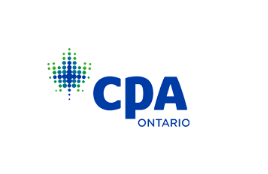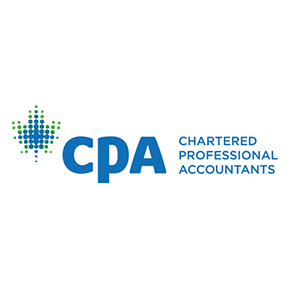How are you being perceived through email, text messaging or voice mail? Learn the simple to implement skills of organizing a one-way transmission to motivate another to pay full attention to your message. The organisational structure (when to say what) assists tremendously with comprehension and retention of even the most complex of ideas. Impress all with your ability to simplify the complex, get to the heart of the matter, and motivate receivers to want to pay attention.
Are you submissive, aggressive or assertive? Find out where you fit and why assertiveness is the best way to achieve your goals. Learn the words to use, the secrets of body language, and how to interpret other’s behaviour to make positive assertiveness a productive force in your life.
Interactions at work with colleagues, supervisors, and technicians don’t always go as smoothly as we’d like. One’s ability to maintain control in difficult to control situations is the hallmark of excellent communication’s ability. Learn to communicate via email and telephone to promote cooperation and effectively resolve issues that are deemed difficult. Recognize that conflicts will happen in the workplace, our goal therefore is to be at our best when it’s most required of us. Learn to use your voice and rapport building skills to reduce tension, deal with emotion, and make for a more stress-free professional life.
To be at our best when we most need to be requires having the confidence and competence at recognizing potential problems and circumventing them before they escalate. Being assertive in clarifying expectations early in the engagement is essential.
This highly regarded course uncovers the often hidden motivations of why we act the way we do and provides practical, easy to implement strategies to turn negatives into positives and strengthen interpersonal relationships. We’ll explore the typical difficult interactions of your workplace and role play approaches that lead to improved outcomes.
Learn to achieve your conversational goals with clients by asking the right questions and actively listening to the answers. Use closed and open questions strategically to move client conversations in the right direction. Learn to lead by involving people in a way that galvanizes their support in the short and long term. Practice one of the most important skills of career success: empathy. Learn to see agendas from the client’s perspective to enhance your own understanding, to build your credibility (and likeability), and to enhance your persuasive influence.
Client negotiations can sometimes leave us feeling frustrated when we feel the client is being unreasonable. Our responses in these situations will have an impact on the present negotiations, engagement with the file, future business, and so on. Dealing with difficult clients requires that we be at our best under pressure. To engage clients with tact, diplomacy, skill, and compassion are the hallmarks of learned communication competence.
Our responses to these clients must be based on professional integrity and assertive communication while still maintaining a supportive communication climate.
We need to explore the underpinnings of unreasonable requests and behaviours in order to understand them and move ahead with supportive professionalism.
Conversing with your clients at the office, a conference, the golf club, or any other venue is always an opportunity to create and strengthen the relationship, or to inadvertently weaken it. It’s the conversations we have that build relationships. Understanding the ingredients of good conversation, knowing what to say and when, directing and redirecting the interaction, and being capable when it becomes difficult are the hallmarks of excellent conversation management. In this entertaining and interactive session, we’ll explore a pragmatic model of interpersonal effectiveness. We’ll increase our self-awareness, capitalize on the perceptual tendencies of others, and appreciate talk that includes and excludes. We’ll delve into the important elements of the conversational process: attitude, attendance and contribution. You’ll be given tips on putting your best foot forward, preventing conversational problems, and repairing interactions that do go astray.
An employee who resides in the top quartile of the employee engagement continuum is three times more likely to succeed than in the bottom quartile. Of publicly traded companies, more engaged organizations outperformed competitors by almost 20%. Employee engagement is one of the most significant determinants of profitability within a company’s control.
Based on the overwhelming research of the U.S. Gallup organization, this program uncovers the mind-set, and the easy to implement skills that lead to higher employee engagement.
We no longer live in a world where the paternalistic relationship between employee and employer exists. The company can no longer offer the traditional motivators of money, promotion, and job security- these are simply too scarce to go around. The new reality must engage through an implicit contract of mutuality where employees learn and grow, and have the confidence to take care of themselves even if the company can’t. The skills of validation, information, and participation are the underpinnings of the engagement premise that work satisfies human needs.
The relatively simple, and as a result consistently underestimated, power of: expectations, resources, opportunities, recognition, encouragement, purpose, progress, etc. have a (to put it mildly) profound impact on customer service, resignations, accidents, productivity, sick days, creativity, sales, and productivity.
Join us as we explore the practical strategies of engaging employees to their potential. Learn to spot the root causes of performance gaps and implement the appropriate interventions. Empower your employees by hearing their voices in a new light. Appreciate the power of a healthy, supportive communication climate in promoting growth and performance.
How satisfied are you with all the micro-skills that make up executive leadership? Are you sometimes unsure if you are presenting yourself as clearly and professionally as possible? According to the Harvard Business Review the “ability to communicate” is the single most important requirement for corporate advancement. This unique one-on-one approach allows you to increase your communication confidence by focusing on specific skill development. Through investigative questioning, self-assessment tools, observation, and video recordings, we will create an inventory of your executive skills. Following the assessment you will receive a detailed written report with recommendations for further skill development. Individual coaching in specific skill areas may then be arranged.
Learn how to expand your listening capabilities and become a more effective communicator. Listening is a learned skill that typically has been ignored as such; consequently, it’s our worst communication skill. Learn to take in a greater amount of information, hear what’s not being said, and build relationships in this powerful session.
With CASL (Canadian Anti-Spam Legislation) firmly in place, companies are reverting back to using the phone to make initial contact with prospective customers. The importance of these calls cannot be understated. Initial contact must inspire interest, pique curiosity, sell credibility, and secure consent to continue the conversation. Sometimes the right person answers, and sometimes they don’t. The ability to chat with gatekeepers, leave voice messages, overcome the response of “not now”, are all skills necessary to succeed in our new CASL environment. Our collective reliance on email has simply stagnated our phone skills. If there was ever a time to resurrect this powerful communication medium… it’s now!
This Lunch and Learn workshop provides participants with the easy to implement skills and scripts to implement in any telephone scenario. We’ll cover exercising good judgment, organizing voice messages, capitalizing on voice, and listening to build a customer connection.
Do your presentations have the impact you intend? Are you unsure what information should be included in, or omitted from, your presentations? Does your delivery grab and hold your audience’s attention? Do your words motivate audiences to action? Your executive image can be either built or undermined by your presentation abilities. This highly successful workshop will enhance your presentation skills and give you the insights you need to project a confident executive image in any speaking circumstance. We’ll cover everything you need to know to deliver any presentation with clarity, persuasiveness, and confidence. This course is designed for professionals with an emphasis on organizing your thoughts and data for maximum impact, developing visuals to enhance your message, and projecting competence through body language and voice.
To be self-confident in professional and social situations is a feeling of freedom- freedom to be you. To be encumbered by concerns of how you look, how you act, what to say, how to say it, etc. constrains your willingness to get involved, to be creative, to be assertive, ultimately to be yourself. This workshop takes the pressure off by giving you the easy to implement strategies of looking your best, conversing with confidence, and dining with grace. Learn how to network for results, listen to create goodwill, and make introductions with flair. Knowing you’re making the right impression with ease and comfort provides you with the psychological and emotional space to be yourself. This workshop is designed by choosing elements from our other full-day workshops to create a customized experience for participants.
This highly successful seminar brings participants to new insights about themselves, their colleagues, and their customers. Learn to assess the interpersonal style of others and learn how to maximize your communication approach to enhance effectiveness and persuasiveness.
Anyone who works at a desk knows the importance of good writing skills. This course is just what you need to write clear, concise business letters, memos, emails and reports. Professionally relevant activities and basic do’s and don’ts will have you writing like a pro as you discover the secrets to well-written sentences and learn how to quickly organize your thoughts.
Too much writing and too little time is the recurring challenge of the busy professional. Learning how to focus your main message and bring it to your readers’ immediate attention is key to fast and effective business writing.


